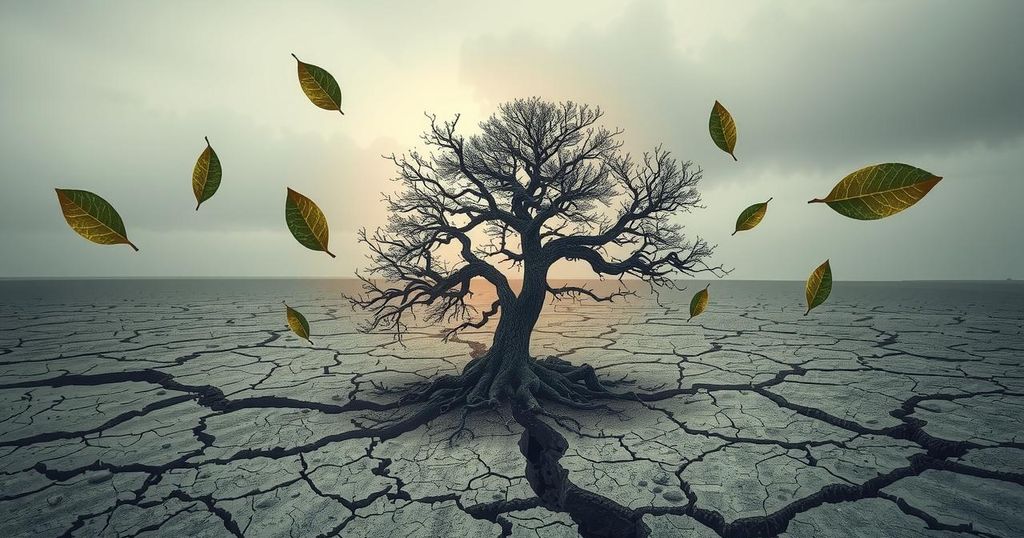A Transparency International report highlights the detrimental effects of corruption on climate action in sub-Saharan Africa. The report reveals that systemic corruption undermines efforts to secure climate finance and implement essential environmental initiatives. Countries like Seychelles and Tanzania show promise in anti-corruption measures, but challenges remain significant in many regions, particularly for vulnerable populations affected by climate change.
A recent report by Transparency International emphasizes the detrimental impact of systemic corruption on climate action in sub-Saharan Africa. Titled “2024 Corruption Perceptions Index: Corruption is Playing a Devastating Role in the Climate Crisis,” the report reveals that ineffective anti-corruption strategies impede efforts to address climate change effectively. Moreover, significant climate finance is essential for African nations to meet their climate action commitments as outlined in their nationally determined contributions (NDCs).
The Corruption Perceptions Index (CPI) in the report addresses the pervasive nature of corruption, which obstructs efficient climate action. Ranking 180 countries from 0 (highly corrupt) to 100 (very clean), the index identifies Seychelles, Cabo Verde, Botswana, and Rwanda as the least corrupt in sub-Saharan Africa. However, countries like Equatorial Guinea, Eritrea, Somalia, and South Sudan, which are severely affected by climate change, rank among the most corrupt.
Corruption not only weakens governance but also diverts vital climate funding, further complicating environmental decision-making. For instance, Libya is grappling with social and environmental challenges exacerbated by corruption, leading to severe consequences like the collapse of infrastructure during Hurricane Daniel in September 2023. In Eswatini, the government’s lack of accountability stymies progress in combating corruption amid increasing climate-related adversities.
As South Africa gears up to host the G20 Leaders’ Summit, significant concerns about corruption linger, particularly related to the state-owned utility Eskom. Allegations of monthly theft amounting to over a billion rand from Eskom raise skeptics regarding the government’s capacity to manage climate-related corruption. In Zambia, corrupt dealings facilitated the illicit trade of Mukula wood, generating substantial illegal revenue while undermining environmental protection efforts.
The report sheds light on the perilous environment faced by land and environmental activists in corrupt nations. Instances of violence and intimidation against environmental defenders abound, with notable murders recorded across African countries. The report cites specific cases from the Democratic Republic of Congo, Rwanda, and Ghana, highlighting the urgent need for protective measures for those advocating for the climate.
Maira Martini, Chief Executive of Transparency International, calls for urgent global action to eradicate corruption that hinders climate initiatives through malfeasance and improper funding use. She emphasizes the necessity of integrating anti-corruption measures into climate efforts to safeguard funding and rebuild public trust in governance systems. Some nations, like Seychelles and Tanzania, have made commendable advances in their anti-corruption initiatives, enhancing their capacity to combat related challenges effectively.
Despite promising commitments from wealthier nations to allocate $300 billion annually by 2035 for climate initiatives, ensuring these funds are utilized appropriately is paramount. The authors of the report stress that robust anti-corruption frameworks are essential to protect the interests of both vulnerable populations and environmental health.
In conclusion, systemic corruption in sub-Saharan Africa severely undercuts efforts to combat climate change, diverting necessary funding and corrupting governance structures. Countries with high corruption levels face increased vulnerability, making urgent anti-corruption measures imperative. Notably, certain nations have shown progress in tackling these issues, yet robust mechanisms must be universally implemented to secure climate financing and promote effective environmental protection strategies.
Original Source: www.downtoearth.org.in






